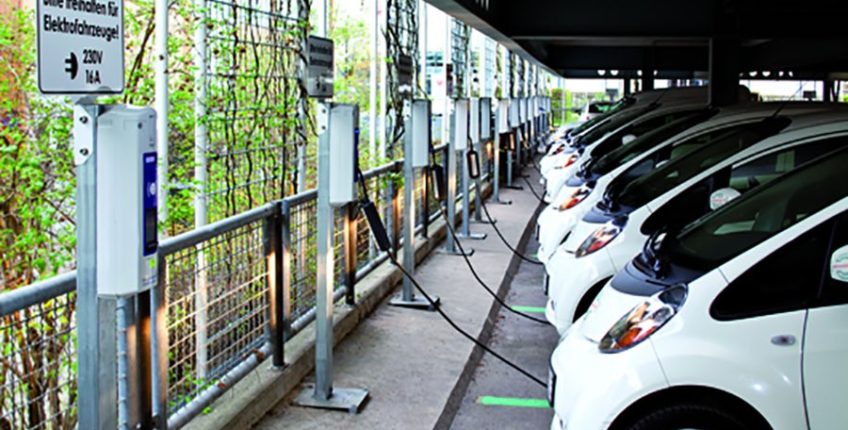The Elektromobilisiert.de project involved developing a service featuring corresponding software applications with the specific goal of supporting fleet operators to efficiently integrate electric vehicles in their fleets.
The service encompasses: (1) a comprehensive analysis of existing fleets — especially in regard to existing cost saving and efficiency potentials, and (2) the entire area regarding the integration of electric vehicles of all categories in existing fleets. A main focus of the project was to determine the most suitable degree of electrification in a fleet — taking both economic and ecological factors into account — which is to be assessed in terms of the individual mobility demands of each examined fleet. Furthermore, fleet operators should be given the possibility of testing electric vehicles in their own fleet for a limited period of time in order to avoid any potentially bad and costly investments from the outset.
Throughout the project, the fleets of nine partners were examined. The chosen methodology involved a fivestep approach for the electrification of a fleet, which was continuously developed further and adjusted to the various demands of the fleets being examined.
In Step 1, the fleets were examined in terms of their function, use and exploited capacity. Driving data from conventional combustion engine-based vehicles — mainly in the form of analogue driving logs — was recorded, processed and evaluated. Building on the analysis of the existing mobility demands, Step 2 involved developing various electrification scenarios for the fleet, which besides the vehicles themselves also encompassed the fleet-side recharging infrastructure. The draft scenarios were then subjected to an economic and ecological evaluation. In Step 3, partners were trained in the use of the electric vehicles and the associated recharging infrastructure.
In order to validate the chosen electrification scenario, a phase of practical tests with electric vehicles was conducted in Step 4. Project partners were provided with various electric vehicles for a limited period during which their deployment and user/staff acceptance was monitored through accompanying research. This enabled the project partners to test the deployment of electric vehicles in their fleets without risk — without the need to actually procure the electric vehicles at this test stage.
As soon as the analysis and test phase was completed and the introduction of electric vehicles was assessed as being suitable — either cross-fleet or for certain areas — Step 5 then involved providing support in terms of procurement management for electric vehicles and the necessary recharging infrastructure.
The project results showed that from an ecological, economic and technical perspective it already makes sense to deploy electric vehicles in fleets today. All fleets examined in the project possessed the potential for electrifying at least part of the fleet.
Based on the individual analyses within the framework of the Elektromobilisiert.de project — and dependent on sufficiently high kilometres driven annually — it became clear that electric vehicles can contribute to overall cost savings in companies as the higher procurement costs are offset by the lower operating costs.
Funding Code
03EM0802

